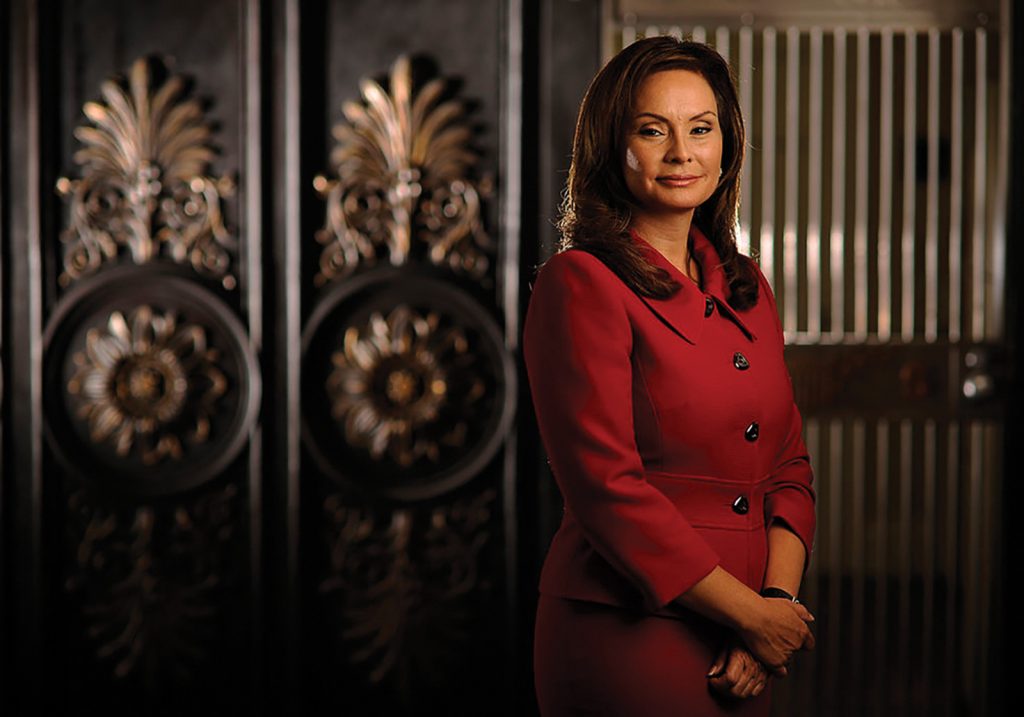Rosie Gumataotao Rios has had quite the decorated career, from managing director of a $22 billion firm in San Francisco to serving in the Obama administration as forty-third treasurer of the United States.
You carry her signature around with you every day in your pocket, if you happen to have one of the 1.2 trillion US bills that went into circulation during her time in office. And it was her thrust to get a woman on United States currency that culminated in 2016 when Treasury Secretary Jacob Lew announced that the new $20 bill would feature a portrait of Harriet Tubman.
That was just the beginning. Now, Rios’ Empowerment 2020 campaign seeks to “right history” and put women in the “three-c” positions of power and leadership: “corporate boards, C-Suites, and Congress,” she says.
Hosted by the Boston College Women’s Law Center, Rios came to BC Law during Women’s History Month to speak about her time in the US Treasury as well as her personal and professional fight for gender equality.
Rios believes that having the faces of women on our currency isn’t only a feminist issue, “it’s just a matter of our country’s history,” a way to set the right examples for the nation’s young girls—and boys. These are the driving forces behind her advocacy and empowerment. They’re why she deems herself an “accidental feminist.”
“If this is how we document the history of our very nascent country, how are we missing half the people in the country?” —Rosie Gumataotao Rios
Chance encounters with prevalent societal structures of gender-based inequality is what drove her towards accidental feminism. Over the course of her tenure in the US Treasury, she said, she was “awakened in ways when you have no idea.”
Among her discoveries was the fact that of the more than 300 Congressional Gold Medals, only eight have been given to American non-spouse women. New York City and Washington, DC, have only a handful of statues and monuments for women, yet dozens and dozens for men. Ironically, she pointed out to the audience, the very lecture hall in which they were sitting had only portraits of men. “It’s everywhere and you just don’t know it until someone says holy cow!” she exclaimed. “If this is how we document the history of our very nascent country, how are we missing half the people in the country?”
These eye-openers helped pave the way for what might have been the defining moment of her time in office—making the ask for a woman on the $20 bill. In keeping with the accidental feminist strategy, she didn’t “play the woman card” when proposing her idea, but rather built the case for a new type of bill, one that included the newest counterfeiting techniques. Using this as a stepping-stone, she then advocated for a woman to replace Jackson. Her boss was receptive; the reaction at-large was positive.
Rios’s next big goals—with Empowerment 2020—are to get more women into the three-c prongs of power and continue righting history. By the time the new $20 bills roll out, Rios envisions having taken significantly more strides towards gender equality. By her count, that “gives us three-and-a-half years to show what we’ve been doing the past 100.”
Photograph: The Washington Post/Getty Images



